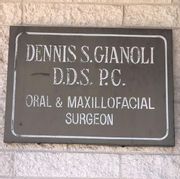When Should You Consider General Anesthesia for Oral Surgery

There are several sedation methods available when undergoing oral surgery, from nitrous oxide to general anesthesia. Procedures vary in length and complexity, so talk to your doctor about the best sedative for your needs. If you have a complicated oral surgery scheduled, consider the following factors when determining if general anesthesia is right for your particular needs.
A Guide to General Anesthetic for Oral Surgery
Factors Determining When to Use General Anesthetic
There are many reasons your doctor may suggest using general anesthesia for oral surgery. For example, it may be a safer option for procedures that last an extended amount of time, require multiple or complicated steps, or involve trauma. It’s also recommended for patients with extreme anxiety, as it makes the surgery easier for the doctor to complete. Sedation options like nitrous oxide are more suitable for dental solutions like fillings or a single tooth extraction, which are less complex and require less time to treat.
Specific Procedures That Involve General Anesthesia
 While different scenarios may require general anesthesia, there are several treatments where it is almost universally recommended. If your wisdom teeth are severely impacted, your dentist will have to create an incision on your gums to remove the tooth. During this procedure, the dentist may need to extract parts of the bone or break the impacted tooth for safe removal. General anesthesia is ideal in this situation because you will be “asleep” during the procedure and will wake up without remembering any of the trauma the mouth has sustained.
While different scenarios may require general anesthesia, there are several treatments where it is almost universally recommended. If your wisdom teeth are severely impacted, your dentist will have to create an incision on your gums to remove the tooth. During this procedure, the dentist may need to extract parts of the bone or break the impacted tooth for safe removal. General anesthesia is ideal in this situation because you will be “asleep” during the procedure and will wake up without remembering any of the trauma the mouth has sustained.
Another treatment that requires general anesthesia is a bone graft. The bones supporting your teeth may become damaged due to tooth loss, trauma, or disease. To restore the structure and functionality of your jaw, an oral surgeon will either take bone matter from another part of your body or use a synthetic material to strengthen it. This is considered a major surgery and should take place under general anesthesia to keep your body pain- and stress-free.
Always talk to your doctor about your needs and concerns when selecting a sedative for your oral surgery. They will take into account your overall well-being, medical history and treatment plan to recommend the best solution for you. Dennis S. Gianoli DDS, PC in Berlin, CT offers sedatives like nitrous oxide or general anesthesia to ensure patients have the best experience possible. To learn more about this oral surgery practice, visit their website or call (860) 828-3559.
About the Business
Have a question? Ask the experts!
Send your question

